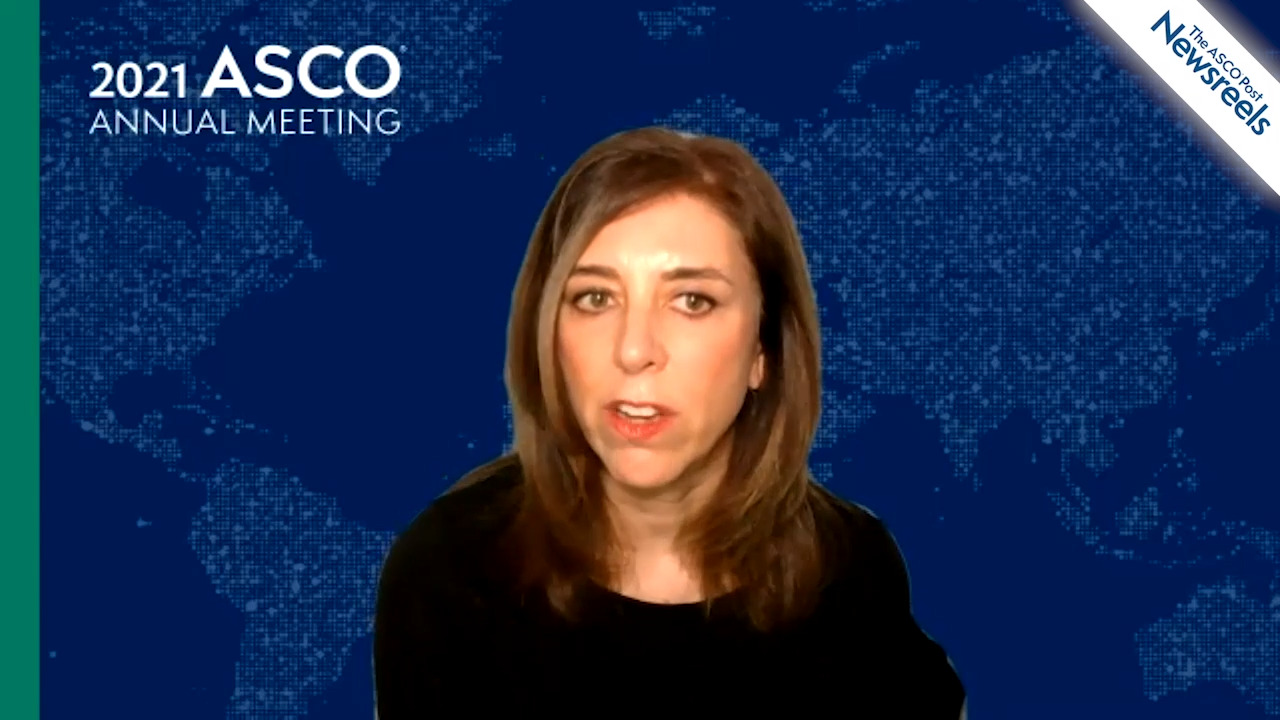Matt D. Galsky, MD, on Bladder Cancer: Neoadjuvant Therapy With Gemcitabine, Cisplatin, and Nivolumab
2021 ASCO Annual Meeting
Matt D. Galsky, MD, of the Tisch Cancer Institute at Icahn School of Medicine at Mount Sinai, discusses results from a phase II trial designed to test gemcitabine and cisplatin plus nivolumab as neoadjuvant therapy in patients with muscle-invasive bladder cancer and to better predict benefit in those who opted out of cystectomy (Abstract 4503).
The ASCO Post Staff
Ann S. LaCasce, MD, of Dana-Farber Cancer Institute, discusses results from the CALGB 50801 Alliance study, which showed that a PET scan–adapted approach may reduce the need for radiation treatment and may improve progression-free outcomes in patients with stage I/II bulky classic Hodgkin lymphoma (Abstract 7507).
The ASCO Post Staff
Robert J. Motzer, MD, of Memorial Sloan Kettering Cancer Center, discusses health-related quality-of-life data from the phase III CLEAR trial, which compared lenvatinib plus pembrolizumab or everolimus vs sunitinib as first-line treatment for patients with advanced renal cell carcinoma (Abstract 4502).
The ASCO Post Staff
Michael J. Morris, MD, of Memorial Sloan Kettering Cancer Center, discusses phase III results of the VISION study, which showed that lutetium-177–PSMA-617 (LuPSMA), a targeted radioligand therapy, plus standard-of-care treatment improves radiographic progression-free survival and extends overall survival compared with standard of care alone in men with metastatic castration-resistant prostate cancer (Abstract LBA4).
The ASCO Post Staff
Peter C. Black, MD, of the Vancouver Prostate Centre, University of British Columbia, reviews three studies on early detection and treatment of Black patients with prostate cancer: a large-scale analysis of genomic profiling; the use of PSA screening; and integrating a patient-specific genomic classifier to improve risk classification and treatment recommendations for Black men (Abstracts 5003, 5004, and 5005).
The ASCO Post Staff
Vamsidhar Velcheti, MD, of New York University, discusses overall survival and exploratory subgroup analyses from the phase II CodeBreaK 100 trial, which evaluated the use of sotorasib in pretreated KRAS G12C–mutant non–small cell lung cancer (Abstract 9003).





